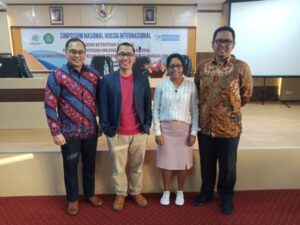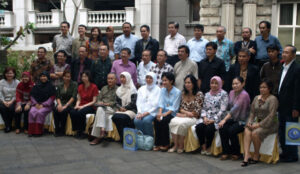BINUS University recognizes labour rights, including the freedom of association and collective bargaining for all employees, including women and international staff. The university provides a space for employees to join trade unions and participate in negotiations related to working conditions and benefits. This commitment is outlined in our internal policies that uphold principles of fairness and equality within the workplace.
Moreover, several BINUS faculty members are actively involved in professional associations, such as:

- REZA ZAKI, Executive Director of the International Law Faculty Association.
- Prof. Dr. Juneman Abraham, Board Member of the Indonesian Psychological Association (HIMPSI) and co-founder of the Indonesian Forensic Science Association (AIFI).
Additionally, BINUS faculty participate in hearings at the Indonesian House of Representatives (DPR RI) alongside the Indonesian Association of Lecturers (IDR) to advocate for legislation concerning faculty welfare and to contribute to the “Buku Kajian pendidikan tinggi Ikatan Dosen RI (IDRI)”, book published by the Indonesian Lecturers Association (IDRI) in 2018, which includes recommendations for improving higher education processes in Indonesia.”














